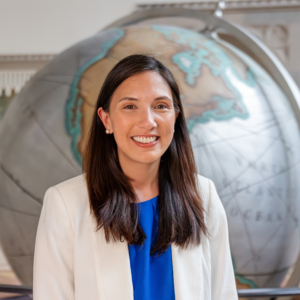Inequality in America: America's Social and Economic Inequities
The US is the most unequal high-income economy in the world, with wealth inequality rising. The top ten percent of American families controlled nearly 70 percent of the wealth in the US in 2022. Over the last fifty years, the poverty rate in the US has remained stagnant. How do we explain America's social and economic inequities and stasis? How do these facts change when examining intersectional identities based on race, class, and gender, particularly in the context of anti-immigrant xenophobia and anti-black racism? Students in this course will develop a critical understanding of the historical and contemporary causes and consequences of inequality and how it is reproduced in society.
The first half of this course will center on a critical analysis of various sources and outcomes of inequality, focusing on education, political representation, residential segregation, and racial disparities. The second half of the course will explore the opportunities of countervailing inequality, asking what is to be done. Students will research policy solutions, drawing on a range of interdisciplinary sources.
Academic Directors
Jennifer Huynh

Jennifer Huynh is an Assistant Professor in the Department of American Studies. Her research focuses on race, immigration, and Critical Refugee Studies. Huynh earned her B.A. from the University of California, Berkeley, and her Ph.D. from Princeton University. Before coming to Notre Dame, she worked as a sociology instructor in northeast China and as a lecturer in Asian American Studies at Northwestern University. Huynh is currently working on a book manuscript, Suburban Refugees: Class, Race, and Resistance in Little Saigon, which examines the experiences of the children of Vietnamese refugees and their parents. Huynh has published articles in various peer-reviewed journals including Ethnic and Racial Studies, Journal of Ethnic and Migration Studies, and the Journal of Asian American Psychology. She is a first-generation college student from Southern California.
Ricardo Ramirez

Ricardo Ramirez is an Associate Professor of Political Science at the University of Notre Dame. He is the director of the Hesburgh Program in Public Service and a faculty fellow in the Institute for Latino Studies. He is past President of the Western Political Science Association (WPSA). He received his B.A., cum laude, from UCLA and his Ph.D. in Political Science from Stanford University. His broad research interests include political behavior, state and local politics, the politics of race and ethnicity, and immigrant politics. His research is geared to understanding the transformation of civic and political participation in American democracy by focusing on the effects of political context on participation, the political mobilization of and outreach to Latino immigrants and other minority groups, and the causes and consequences of increasing diversity among elected officials.